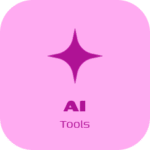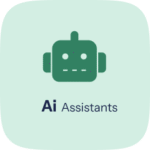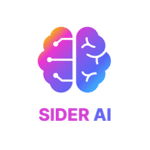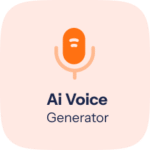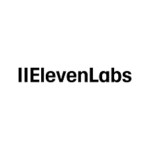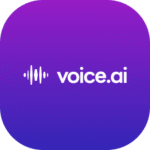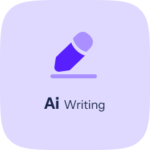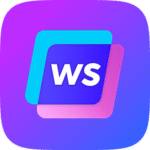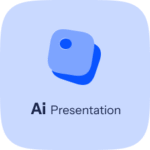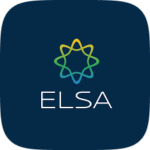Top AI Tools for Research That Make Data Work for You
🔍 Introduction: How AI Turns Raw Data into Meaningful Research
In the information era, researchers face an overwhelming volume of unstructured data. Fortunately, artificial intelligence (AI) isn’t just a helpful addition—it’s now a necessary companion. Whether you’re a university scholar, industry analyst, academic writer, or curious student, using the top AI tools for research that make data work for you can significantly enhance your workflow. These tools process, interpret, and visualize data in ways that save hours and reveal deeper insights. With capabilities like citation automation, semantic search, and real-time data analysis, AI research tools streamline tasks that once took days. From NLP to machine learning-based discovery platforms, this guide explores today’s leading tools, expert strategies, use cases, and comparisons to help you unlock the potential in your data effortlessly.
📌 Why Are AI Tools Crucial for Modern Researchers?
Traditional research methods often demand extensive hours in data collection, synthesis, and analysis—a luxury many professionals no longer have. AI fills this gap by streamlining workflows, minimizing human error, and boosting productivity. From predicting trends in datasets to auto-generating citations and paraphrased content, AI tools support every step of the research process. These platforms also democratize access to advanced data science capabilities. Whether you’re conducting peer-reviewed research or optimizing content for academic publishing, AI tools offer indispensable features like semantic search, customizable summarization, and collaborative integration—all increasingly essential in today’s fast-paced research environment.
Note: Prestigious institutions such as Harvard and MIT have embraced AI research tools as academic infrastructure (source).
✨ What Advantages Do AI Tools Offer?
- Accelerate research timelines from weeks to mere hours.
- Uncover patterns and insights in complex datasets.
- Automate literature reviews to elevate the quality of academic writing.
- Enable faster and smarter knowledge discovery through contextual search.
📚 Best AI Research Tools You Should Know
1. What Makes Semantic Scholar a Smart Literature Companion?
Backed by the Allen Institute for AI, Semantic Scholar is a robust academic search engine that goes beyond keyword matching. Utilizing advanced NLP techniques, it understands the context of your queries, enabling faster discovery of relevant work. Features like Citation Graphs and Author Influence Scores offer deeper evaluation metrics, making it a reliable choice for students, educators, and professional researchers.
2. How Does Scite.ai Enhance Citation Analysis?
Unlike conventional citation counters, Scite tracks how a paper is cited—supportive, opposing, or neutral. This adds a layer of interpretability to citation counts, allowing users to assess credibility with greater precision. Seamless integration with tools like Zotero and Mendeley enriches the scholarly workflow and adds transparency.
3. Can ChatGPT Accelerate Your Research Tasks?
The GPT-4-based model from OpenAI, especially through Pro or shared accounts, is a multipurpose research tool. It excels in summarizing content, generating hypotheses, drafting communications, and even writing or debugging code. For budget-conscious users, consider using crypto-payment alternatives or shared access to reap full benefits at lower costs.
4. Why Use Elicit for Structured Literature Reviews?
Developed by Ought, Elicit is designed to synthesize research based on your input questions. Its AI pulls key findings directly from top papers, suggests new investigation angles, and reduces time spent skimming irrelevant materials—perfect for conducting systematic reviews with clarity.
🔎 Comparing the Top AI Tools: Which One Fits Your Needs?
| Tool | Main Features | Pricing Model | Best Use Case |
|---|---|---|---|
| Semantic Scholar | Context-aware search, citation graphs | Free | Academic article discovery |
| Scite.ai | Smart citations, citation sentiment | Freemium | Validating paper credibility |
| ChatGPT | Natural language queries, summarization, coding | From $20 per month | Multi-purpose research environment |
🌟 Quick Insights Before You Start
- Each tool fits a specific research stage—choose strategically.
- Freemium models offer robust features at minimal cost.
- Combining tools (e.g., Scite + Zotero) produces more credible outputs.
⚠️ What Mistakes Should You Avoid When Using AI Tools?
While powerful, AI tools aren’t foolproof. Users often make the mistake of assuming AI output is always correct. Over-reliance can also limit your analytical growth. Don’t forget to:
- Cross-check AI-generated citations with peer-reviewed databases.
- Tweak prompts to match your research domain and goal.
- Pair machine-generated outputs with your own critical thinking for richer results.
📈 Key Stats That Demonstrate the Rise of AI in Research
- Over 70% of researchers use AI tools for literature review tasks (Springer Nature, 2023).
- AI-based platforms can cut data analysis time by as much as 80% (Nature Publishing).
🧠 Busted Myths About AI Research Tools
| Myth | Reality |
|---|---|
| AI will replace human researchers | AI assists and enhances human analysis, not replaces it |
| All AI tools are costly | Many tools have free or low-cost tiers ideal for individuals or small teams |
| Only large datasets benefit from AI | AI helps synthesize even small qualitative datasets |
🏆 Proven Use Cases and Testimonials
Dr. Amin (Data Scientist): “Using Scite and Elicit together saved nearly one month on my meta-analysis. I could focus on conclusions rather than sifting through irrelevant studies.”
Lina (Grad Student): “ChatGPT helped me condense over 30 articles and identify missing perspectives. My thesis defense preparation was far more efficient.”
EduTech Inc: “By automating content ideation through NLP tools, we improved engagement metrics by 43% in just three months.”
✅ Step-by-Step Getting Started Guide
- Define your research goals and select relevant data sources.
- Choose the AI tool that aligns best with your research phase.
- Customize tool inputs (e.g., prompts, filters) for precision.
- Always verify outputs through trusted scholarly sources.
- Export information into citation-friendly formats for future use.
📚 Helpful Resources Worth Exploring
- Connected Papers – Map out research paper networks visually.
- The Lens – Dual-search patents and academic publications.
- Scribbr AI Proofreader – Enhance your academic writing quality.
📖 Case Study: Pharma Team Cuts R&D Time by 35% with AI
A German biotech startup streamlined analysis of over 500 medical trials by integrating ChatGPT and Scite.ai. These tools enabled automated cross-study summaries and highlighted conflicting data points. As a result, regulatory filing was expedited and R&D expenses dropped by 35%. Secure shared access to ChatGPT improved collaboration across clinical and data science teams—showcasing how AI research tools can fast-track innovation without compromising rigor.
👁️ What’s Next? Trends to Watch in AI Research Tools
The future of AI tools in research includes handling multimedia data (text, visuals, audio) and processing real-time feedback. Tools will soon build analytical models autonomously based on simple research inputs. Integration across platforms like Notion, Slack, and even IoT research devices is becoming more seamless. Expect features like blockchain-based citation validation and smart academic contracts to redefine the credibility and integrity of future publications.
🎓 Pro Tips from Research Experts
💡 Begin with a focused research question—AI tools perform best when you’re clear on your objective.
🛠 Combine multiple AI assistants for optimal productivity.
⌛ Batch summarization and analysis tasks to save time.
🔒 Always ensure your tool complies with data privacy regulations (e.g., GDPR).
🎯 Never skip human review—combine intuition with AI insights for reliable outcomes.
🔁 FAQ: Your Questions on AI Research Tools Answered
1. What are the best AI tools for academic research?
Semantic Scholar and Elicit are highly rated for curating academic texts and organizing structured reviews.
2. Can AI fully replace human analysis in research?
No—AI complements human insight. Critical interpretation by domain experts remains essential.
3. How useful is ChatGPT in research?
It’s extremely versatile—great for summarizing content, improving language, generating ideas, and assisting with coding.
4. Are AI research tools free?
Many tools like Semantic Scholar and Elicit offer free access. Others, like Scite.ai or ChatGPT, follow a freemium or subscription model.
5. Can AI support qualitative research?
Yes. Tools such as ChatGPT analyze themes from interviews and summarize open responses effectively.
6. Are there privacy concerns with AI research tools?
Yes, avoid uploading sensitive data to cloud-based tools that don’t comply with data security standards.
7. How accurate are AI-generated citations?
Accuracy varies—always cross-check through platforms like Scopus, PubMed, or Google Scholar.
8. Can ChatGPT be purchased with cryptocurrency?
Yes, platforms like Ploonad offer secure payment options using crypto.
9. Scite vs. Semantic Scholar—what’s the difference?
Semantic Scholar is best for exploring documents; Scite specializes in understanding how papers are cited contextually.
10. Are AI tools accepted in academia?
Yes, if their use is transparent, output is validated, and proper citations are maintained.
11. Can AI tools assist with coding tasks?
Definitely. ChatGPT and similar tools can generate or correct research code snippets.
12. What’s ideal for systematic reviews?
Elicit is purpose-built for step-by-step literature extraction based on research questions.
13. Do these tools export to citation managers?
Yes—most export formats support integration with Mendeley, Zotero, or BibTeX-ready platforms.
14. Is AI-generated content plagiarism-safe?
Usually, but for safety, run it through plagiarism checkers like Turnitin or Grammarly.
15. Can these tools work offline?
Most are cloud-based, although limited offline NLP tools exist for basic functions.
16. Are these tools GPU-dependent?
Advanced models like GPT-4 require GPUs but they run on servers; your local device doesn’t need one.
17. Is there a steep learning curve?
Not at all. Most platforms are user-friendly with tutorials and onboarding support.
18. Are tools multilingual?
Yes, many now support multi-language input and translation—ideal for global collaboration.
19. What about data visualization tools?
Consider ChartGPT or Tableau (with GPT extensions) for converting raw data into visual stories.
20. How does Ploonad support AI research workflows?
Ploonad offers curated access to advanced AI tools, secure sharing features, and flexible plans that suit both individuals and teams.
🧩 Conclusion: Let AI Streamline Your Research Journey
AI is reshaping research from passive information gathering into an active, smart, and agile process. Whether you’re investigating scientific literature or extracting insights from datasets, the top AI tools for research empower you to move faster, reduce manual errors, and focus on high-level interpretation. If you’re ready to unlock more value from your work, explore trusted AI platforms, mix and match tool functions, and start building a research environment that puts time back on your side—with confidence and clarity.


